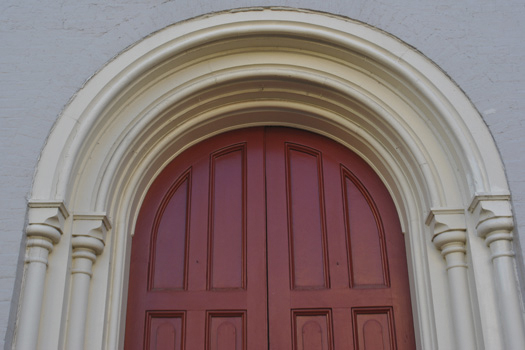Zachary Lewis was one of the very early leaders of St. George’s. He served on the Vestry from 1727-1764 and was clerk of the Vestry from 1727-1746. Paula Felder writes in her book Forgotten Companions that at his death he left 2,000 pounds which he had earned though “good judgment and hard work. But he also left behind the only records by which we can have knowledge of the parish’s early history, in which he played a leading role for almost four decades.” Lewis took minutes for the first 20 years and recorded more detail that would have been done often describing ceremonies that were perfunctory.
Lewis was a lawyer who had married into John Waller family, another leader of the church and town. He was able to take his earnings as a lawyer and purchased seven parcels of land in Spotsylvania and holdings in Culpeper in Orange. He had a stake in society. With his wife Mary Waller they had 10 children.
In 1727, the vestry elected him as both a member of the vestry and clerk of the vestry. He was both a member of the vestry, legal representative and a staff person (clerk) which was unusual. Normally the vestry was reimbursed for their expenses but Lewis also claimed fees for writing deeds and processing cases. To have someone in multiple positions was awkward and led to unusual arrangements for his compensation. Lewis left the role of the clerk in 1746 but continued on as attorney for the parish and member of the vestry until his death in 1764. He also served in the House of Burgesses from 1758-61
Lewis could be a great dissenter particularly when he felt the Vestry took action that it was legally not able to take or was against historic protocol. Such was the case when the Vestry decided to build another church in the south part of Spotsylvania county by delegating authority to two members of the Vestry to select a site. Lewis petitioned the House of Burgesses. The House opposed this and the Vestry ended up picking the site again as an entire body. Lewis actually acted as a clerk of the work on the project despite the above dissent.
In another situation, Lewis disapproved granting a house allowance to Rev. Marye retroactively. The glebe had been sold in 1750 which was the basis for the tobacco in which he was to be paid for his allowance, usually 2,000 pounds of tobacco a year. The sales transaction dragged on for three years and Marye did not receive a housing allowance. The vestry decided to redress this in 1758 and added to his pay two pounds of tobacco for each tithe that year . This would amount to housing allowance for two years. Again this was out of the ordinary or precedent and Lewis opposed it until 1763, the year before his death.
